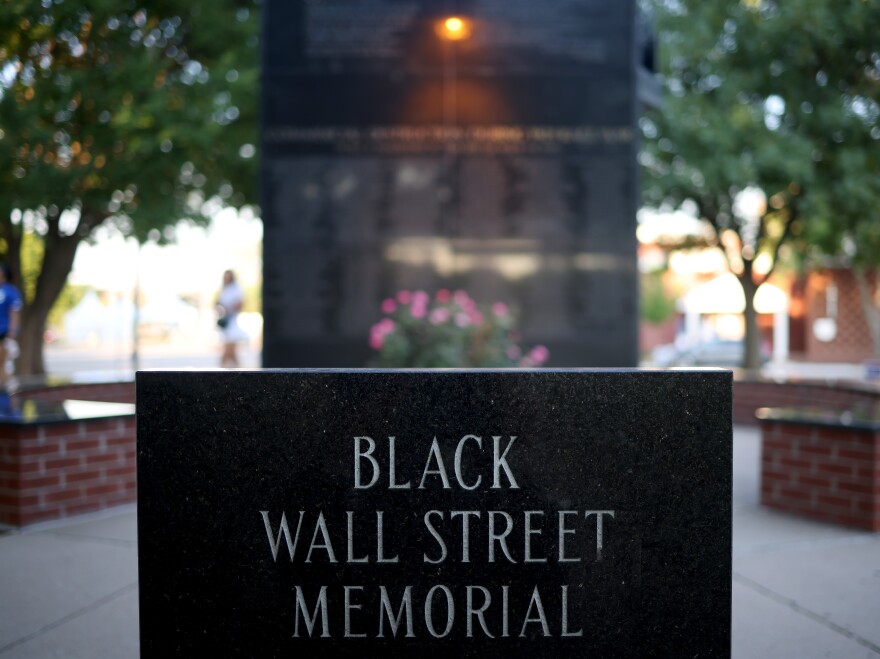Updated June 1, 2021 at 5:12 PM ET
President Biden traveled to Oklahoma on Tuesday to mark the 100th anniversary of the Tulsa Race Massacre amid a renewed reckoning over a long-overlooked attack that left as many as 300 people dead in a community once known as Black Wall Street.
On May 31 and June 1, 1921, an armed white mob attacked the all-Black district of Greenwood. The racist mob destroyed the area, leaving 40 square blocks in ruins and nearly 10,000 people homeless. A century later, it remains one of the worst episodes of racial violence in U.S. history.
"For much too long, the history of what took place here was told in silence, cloaked in darkness," Biden told a group gathered to commemorate the anniversary of the attack.
"But just because history is silent, it doesn't mean that it did not take place. And while darkness can hide much, it erases nothing. It erases nothing. Some injustices are so heinous, so horrific, so grievous, they can't be buried, no matter how hard people try."
For decades after the massacre, the violence was covered up and not well known nationally. But as the national conversation has increasingly focused on the issue of systemic racism and police violence over the past several years, the attack has received more attention, both in the mainstream news media and popular culture.

During his visit, Biden met with survivors of the massacre — all children then, and now more than 100 years old. He also announced steps aimed at narrowing the racial wealth gap, including ordering the federal government to direct more contracts to small, disadvantaged businesses.
"Untold bodies dumped into mass graves," Biden said. "Families, who at the time, waited for hours and days to know the fate of their loved ones, are now descendants who have gone 100 years without closure.
"My fellow Americans, this was not a riot. This was a massacre."
Biden made racial justice a pillar of his presidential campaign, zeroing in on the message repeatedly — especially after the killing of George Floyd by a Minneapolis police officer.
In his inaugural address, Biden said he would help to deliver "racial justice" and promised that "the dream of justice for all will be deferred no longer."
Biden issued an executive order on his first day in office for the federal government to assess which programs may be discriminatory and to identify possible solutions.
But while Biden has talked about tackling "systemic racism," his administration has faced challenges. Racial disparities have continued throughout the rollout of the coronavirus vaccine, with Black Americans getting vaccinated at a lower rate than whites.
When it comes to police reform, Biden called on Congress to pass the George Floyd Justice in Policing Act by the first anniversary of Floyd's death. While negotiations continue in the Senate, Congress failed to meet that deadline.
Survivors of the Tulsa massacre are still seeking justice and reparations a century later. Three survivors testified before Congress in May about what they saw and the devastating and ongoing impact of the attack.
"I will never forget the violence of the white mob when we left our home," one of the survivors, Viola Fletcher, told lawmakers. "I have lived through the massacre every day. Our country may forget this history, but I cannot."
Copyright 2021 NPR. To see more, visit https://www.npr.org.





